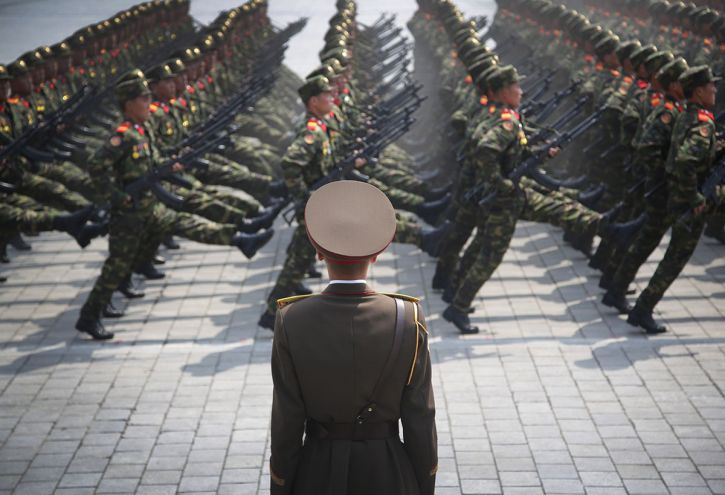
North Korean Crisis and Biblical Tribulation: Examining the Prophetic Connection
North Korean tensions with the U.S. have sparked questions about whether this conflict could trigger the Great Tribulation. Understanding the biblical context and prophecies helps provide clarity on this issue.

North Korean soldiers marching in formation
The Great Tribulation, first mentioned in the Olivet Prophecy (Matthew 24:21), represents the worst period in human history—so severe that without divine intervention, it would result in human extinction. This level of destruction only became possible with modern weapons of mass destruction.
According to biblical prophecy, specific events must occur before the Great Tribulation begins:
- The "beginning of sorrows" including:
- Religious deception
- Wars and rumors of wars
- Famines
- Pestilences
- Key events that signal the Tribulation:
- Persecution of God's true Church
- The "abomination of desolation" in Jerusalem
- God's people fleeing to safety
The prophecy indicates the Great Tribulation will escalate in Jerusalem, marked by the "abomination of desolation" in the "holy place." This refers to a future event similar to when Antiochus Epiphanes desecrated the temple by setting up a pagan altar.
Critical prerequisites that haven't yet occurred:
- Resume of daily sacrifices in Jerusalem (stopped since 70 AD)
- Formation of the "king of the North" (European power)
- Rise of the "king of the South" (likely Muslim confederation)
While the North Korean crisis adds to global tensions, biblical prophecy suggests it won't directly trigger the Great Tribulation. The focal point remains Jerusalem and the Middle East, where key prophetic events must first unfold.
Jesus Christ will return approximately 3½ years after the Great Tribulation begins, following the sequence of events outlined in Daniel 12:11 and Revelation 11:2-3, 13:5.
Related Articles

Germany's Growing Power: The Emergence of a New European Leader

